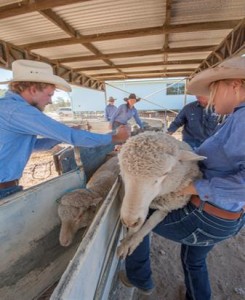Latest listings on Jobs Central recruitment page:
- Market Access & Communications Officer (Sheepmeat Council of Australia)
- Livestock Sales (2 positions) – Esperance and Mt Barker (Primaries)
- QA Officer – Boning Room (Australian Meat Group)
- Meat Trader/Salesperson – Launceston (DR Johnston)
- Territory Manager – Central Qld (Elanco)
- Stockperson – Lemontree Feedlot (McNamee Group)
- Feedlot Machinery Operator (Teys Condamine feedlot)
- Feedlot Manager – Cattle (Australian Food & Agriculture)
- Stockperson/Station-hand (Strathbogie Pastoral Co)
- Feedlot Manager – Grassdale (Mort & Co)
- Pen Riders – feedlot (Ceres Agricultural Co)
- Quality Manager – Meat Processing (4C Recruitment)
Click here to access these and other exciting meat and livestock supply chain jobs currently listed on Jobs Central.
A RECENT survey on Australian employment trends suggested that 80 percent of the reasons for staff turnover are within the control of the employer.
High staff turnover can have negative effects on businesses and the team-members within them, as it can place undue stress on other workers and disrupt workflow.
Hiring new workers can be costly and time-consuming, and the induction and training-up process for new employees can sometimes be a slow process.
It is therefore important for employers across the sheep meat and wool supply chains to understand the common reasons behind high staff turnover and be aware of strategies to improve the situation before a workplace is affected.
Is your staff turnover too high?
A report from Insync Surveys on Australian business’s staff retention revealed that 80pc of the reasons for staff turnover are within the control of the employer.
Identifying the factors that are influencing worker’s decisions to leave is vital for an employer to be able to manage the concerns.
The survey identified several issues that may motivate a staffmember to leave, including a lack of job enrichment, negative relationships with fellow employees, work stress and pay conditions. For more than one third of survey respondents, their decision was caused by a combination of these factors.
In addition, work stress may be particularly concerning for employees in labour-intensive environments.
Overworked employees are more likely to experience higher stress levels which can lead to burnouts and the decision to move on. Are staffing levels appropriate in your department or division to cope with the workload?
Improving employee retention
There are several methods for encouraging staff to stay.
Providing employees with opportunities for growth and development can be effective, as well as giving them good feedback and a chance to voice their feedback in turn.
It is also important to provide a clear purpose to help direct them and unify the team, and to articulate the values of the organisation.
Being flexible with employees can also be valuable, such as offering more flexible hours for those with children, or negotiating with an employee on why they can take annual leave (within reason), rather than telling them when they can or cannot have time off. Furthermore, building a strong team of workers may help employees to feel more valued and included.
By utilising these techniques, employers can help to improve the levels of staff turnover and subsequently encourage the overall success of the business, division or department.
Source: Meat Processors Pty Ltd


HAVE YOUR SAY